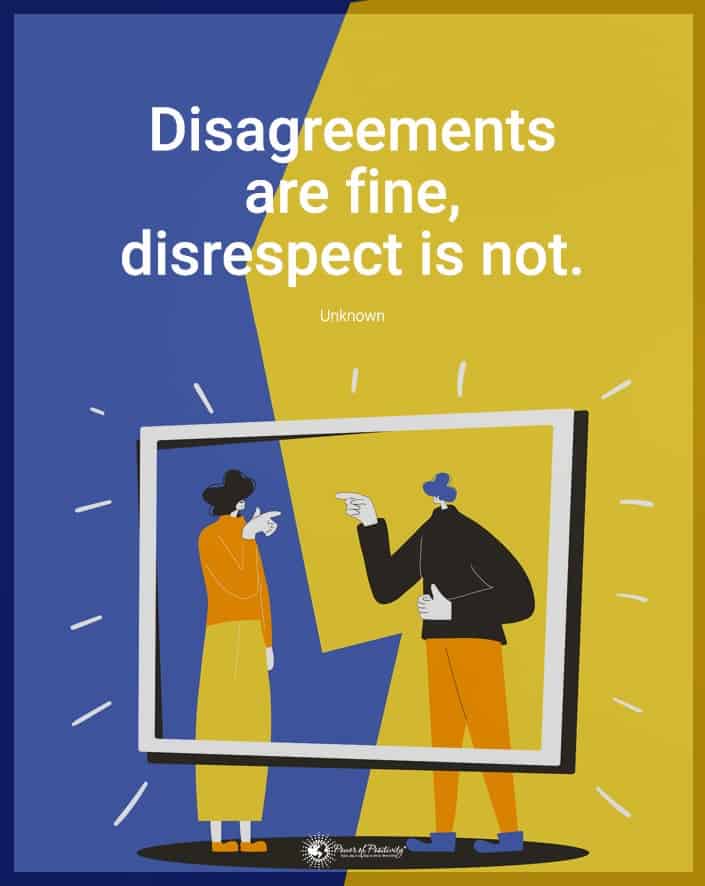False beliefs about marriage permeate relationships across the globe. It’s no surprise with how much it’s romanticized and falsely presented in pop culture and fiction! There’s a huge tendency for people to mismanage marital issues based on those false beliefs. This situation creates more significant problems in the most common forms of conflict and setbacks.
Healthy marriages come in many forms and intricacies, but some facts are virtually universal. Unfortunately, these facts are the same that numerous inaccuracies have drowned out! If you fall for them, it could spell doom for your marriage. Here are five false beliefs about marriage, never to believe.
False Belief #1 – Reciprocity and Quid-Pro-Quo Are The Way To Go
Equality is a good concept to have in a marriage. But they often get taken too far due to false beliefs about reciprocity. Some people believe in strictly written contracts to follow, and many celebrities have talked about theirs. For others, there’s a general idea that some form of agreement about the division of relationship duties is necessary. That may be a verbal “contract” or something even less set in stone.
Of course, each spouse must do their fair share in their shared home and overall relationship. And of course, you should be giving each other affection and doing nice things for each other! But being too calculated about this “fairness” can lead to a marriage’s downfall.
This is because:
- The desire to split something 50/50 is not possible. There will always be inaccuracies and inconsistencies, which breed resentment and contempt.
- Keeping track of a contract causes couples to become calculated, even “keeping score” against each other. This goes to worse places than the simple healthy competition and becomes a passive-aggressive battle.
- Contracts don’t involve compromise. Instead, they rely on hard and fast rules. In something as fluid and central as a marriage, that’s not an excellent structure. Things change, circumstances evolve, and the solution isn’t always divvying up but finding a different path altogether.
- Quid-pro-quo in relationships can lead to arguments over whose turn it is. A perceived lack of equality can cause all agreements to go out the window.
- Research shows that marriages that focus on reciprocity are ultimately less successful.
False Belief #2 – A Spouse Should Always Know What To Do To Make The Other Feel Better
One of the false beliefs prevalent in marriages is that spouses should “just know” the right thing to say or do. While some partners manage to achieve this difficult feat, most won’t – and that’s normal! No one is perfect, and couples can’t read the minds of each other.
Some partners believe that if they need to ask for affection or support, that support is inherently meaningless. This is a toxic and highly harmful thing to insist on. Communication is essential, and this concept goes against that at its core.
It’s true that, over time, you’ll get better at responding in the way your spouse needs. But that’s not a necessary part of any healthy or happy marriage. Above all else, partners need to be willing to talk about their feelings, needs and wants. And, conversely, partners should also be willing to do what they can to help as asked, with compromises always possible.
False Belief #3 – Marital Therapy Is Only For Broken Marriages
People often see the act of utilizing marital therapy as a sure sign that a marriage is crumbling. Marriage counseling is so stigmatized! There are ongoing false beliefs that if you’re seeking help, everything’s as good as over, and divorce is sure to come. It’s even worse if you try to seek therapy early on in a relationship! People will tell you that you’re not meant to be.
But the truth is that there’s nothing wrong with seeking therapy, even when your relationship is pretty healthy. Regularly going to counseling together can even prevent divorce. Studies have shown that, on average, most couples will wait six years before seeking professional help for marital issues. They don’t realize that things are that serious until it’s too late.
Even with no significant marital problems, you can benefit tremendously from marriage therapy. The entire point of treatment of any kind is to give you the tools you need to manage future issues positively. This means that marital therapy in a happy relationship can:
· Improve Communication
They say that communication is the key to any good relationship, and it’s true! Couples therapy can help partners sort out miscommunications and learn tools to avoid or handle them in the future. Encouraging both parties to open up can also end a dangerous lack of communication. The tools you can learn for healthy discussion will ensure a long-lasting, happy marriage. You’ll be able to resolve conflict better, both in and out of therapy.
· Help Each Other See Perspective
It’s natural to see things from your perspective first and foremost. Though you try to put yourself into the shoes of others, even the most empathic people need a little help in seeing other views! Marital therapy lets you and your spouse hear each other’s perspectives on different issues and experiences. Both parties may feel more comfortable expressing themselves in an unbiased and welcoming setting. Your counselor will also teach you tools that will allow you to see each other’s viewpoints without therapy.
· Help You Set Goals Together
All marriages need a few goals and priorities set. You can do them yourself, but any ideas you shouldn’t get help with are false beliefs. Doing these goals with professional assistance can bring tons of benefits. You’ll be able to be completely honest and host productive discussions in a safe environment. Your therapist can also offer guidance based on their knowledge and professional experience to help you set better goals. Continued counseling can ensure both stay on track for those priorities and dreams.
False Belief #4 – You Must Have Shared Interests For A Happy Marriage
If you’ve ever used a dating service, you’ll know that filling out your interests is pretty standard in finding a suitable partner. People often want to date people with whom they can share things, which is not necessarily bad. But is it crucial? Absolutely not!
The belief that you must like the same things is one of the most prevalent marital false beliefs. In fact, the Pew Research Center found that 64% of people believe that shared interests are crucial for their marriages. This ranked higher than the importance of shared political views and a satisfying intimate life!
There seems to be a belief that those who don’t share interests will have a wedge driven between them. The truth is that any activity can do that, and so can any difference in opinion or preference. A strong marriage between two individuals who love each other won’t allow such a wedge to be hammered in!
It doesn’t matter if you have a lot of shared interests, a few, or none at all. What matters is that you both:
- Please respect each other’s interests and don’t belittle or make fun of them.
- Are happy to listen to your spouse speak about their interests.
- Make time for quality time together, even if it can’t involve your respective interests.
- Seek to necessarily “change” the interests of the other beyond simple introductory attempts.
- Are willing to compromise or take turns on activities done together.
- Avoid false beliefs about each other’s interests to the point where deception and falsehoods are involved.
False Belief #5 – Having Kids Will Bring Spouses Closer Together And Save A Marriage
Many couples decide to have children for the sake of their marriage. But this is another one of the dangerous false beliefs about marriage never to believe. Having children can deepen a couple’s empathy and understanding for each other. It can further enhance intimacy and closeness and lead to deeper bonding. You’ll become wiser and expand your horizons. But that’s only in a relationship that’s already healthy.
If you want to fix or save a marriage, having children is not the way to go. Parenthood can reveal many hidden issues, even in happy relationships. Naturally, for a marriage in trouble, that’ll be even worse, and it can feel like it’s all coming out of nowhere! Here are some reasons having children to save a marriage doesn’t work:
· Differences In Parenting Style
If you’re already dealing with a lot of marital conflicts, having kids will worsen that. You must find ways to agree on various aspects of raising and caring for a child. Each parent’s protectiveness over the kids will make these brutal battles to fight without pre-existing healthy communication.
· Jealousy
Children don’t always show affection to both parents in the same way. At a very young age, they may strongly prefer receiving support from one parent. Spouses may feel jealous of this and lash out if they already have prior issues in the relationship. This breeds resentment and unhealthy competition, which creates a toxic family environment.
· You Don’t Have Time
Healing a marriage requires time and effort from all parties. This won’t be possible when you have young children! Kids are a real handful and need so much supervision and care. Your lives will get increasingly hectic, and you’ll barely have time for yourself, let alone each other. This causes problems and issues to sit and stew as you avoid them, which will blow up later.
· You’re More Emotionally Fraught
Having children is stressful. If you’re stressed out due to marital issues, kids will only worsen that. You’ll be snappier, irritable, and less willing to discuss things. You’ll be running on empty a lot, leaving you with no bandwidth to manage pre-existing conflicts and problems.
Final Thoughts On Some False Beliefs About Marriage To Never Believe
For something so romanticized, marriage sure can be tricky! False beliefs about marriage only make matters worse. They can lead to disappointment, toxicity, and an unhealthy relationship. By separating myth from fact, you and your partner will be able to better manage future marital issues with mindfulness and care.

















 Community
Community

